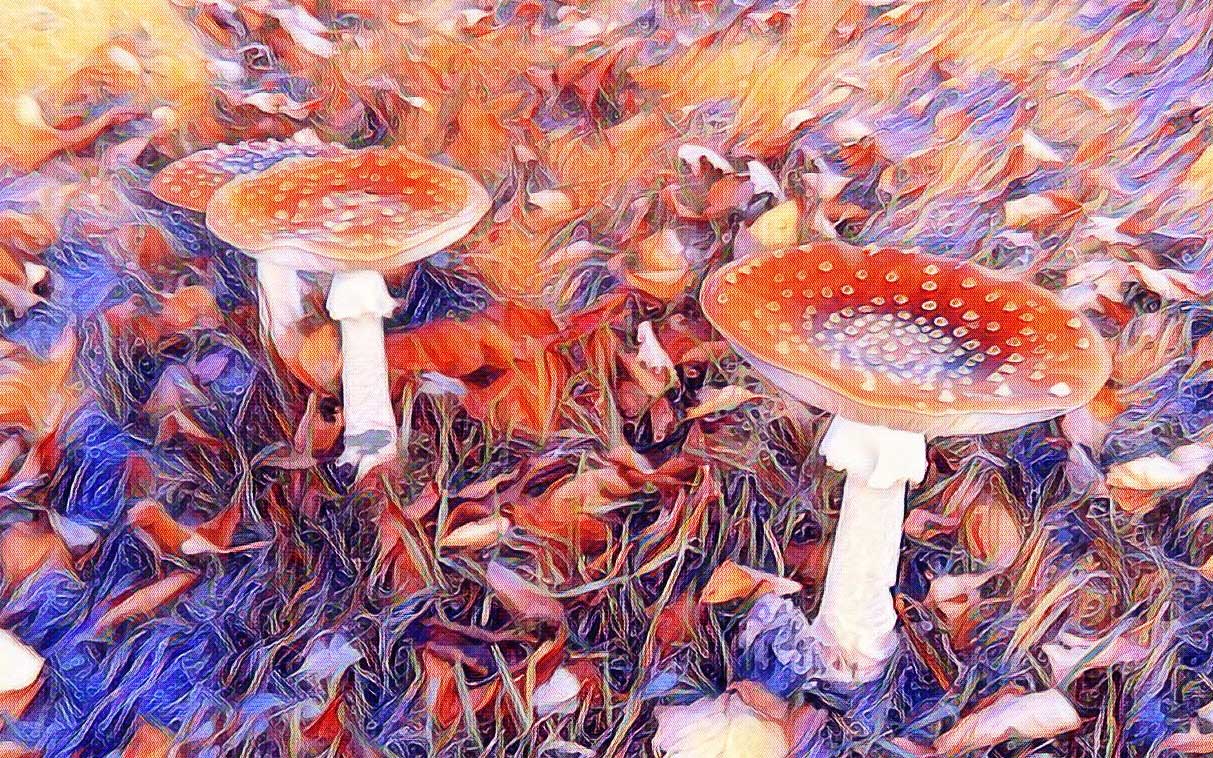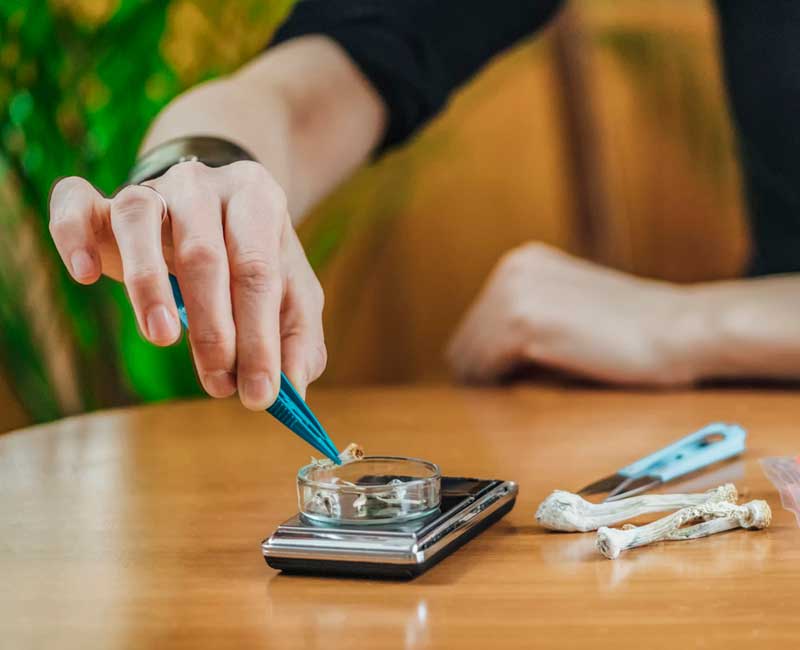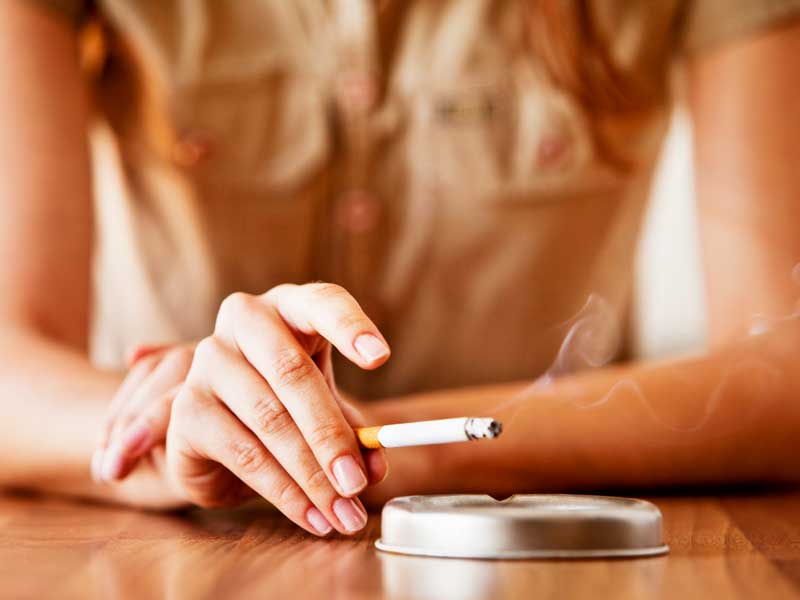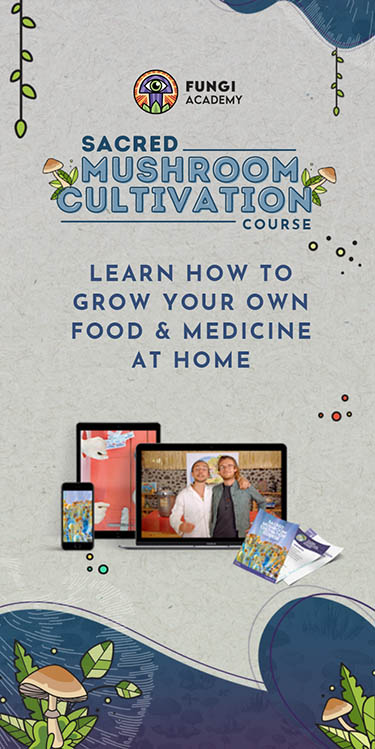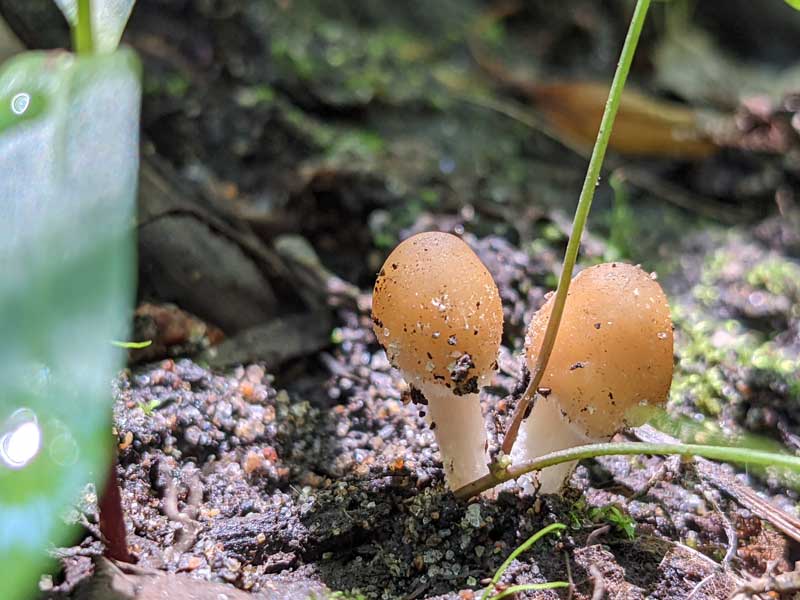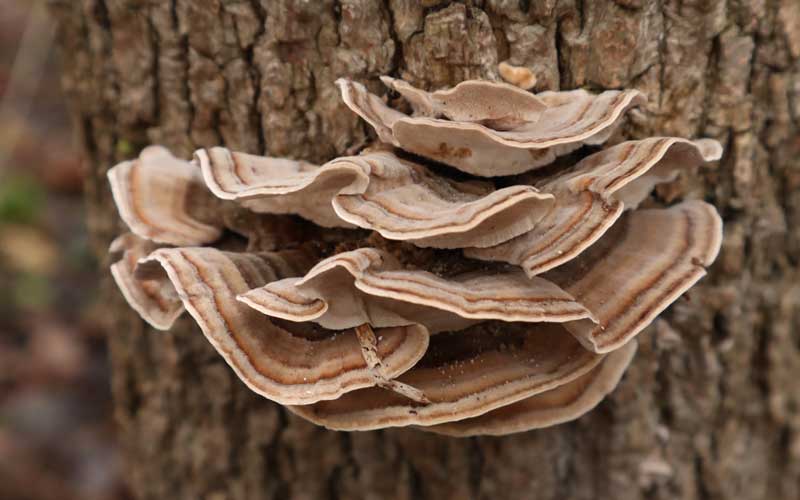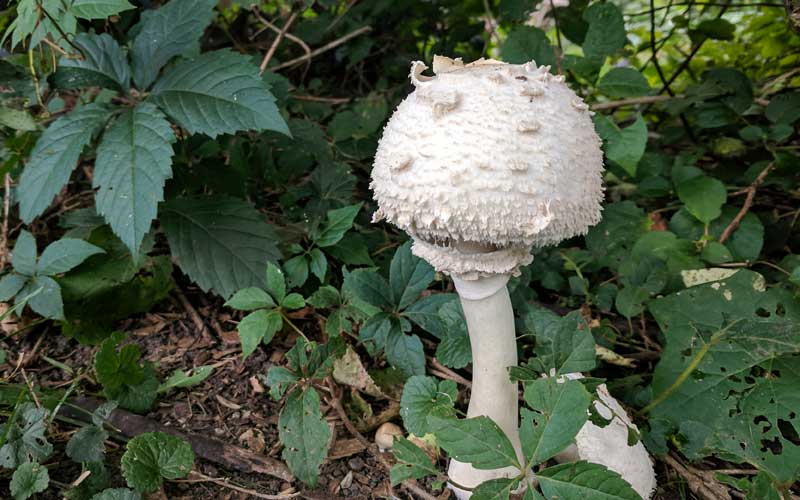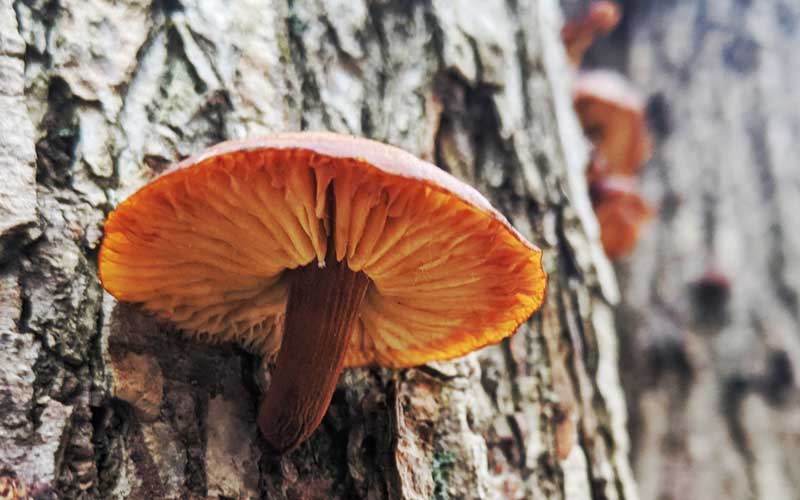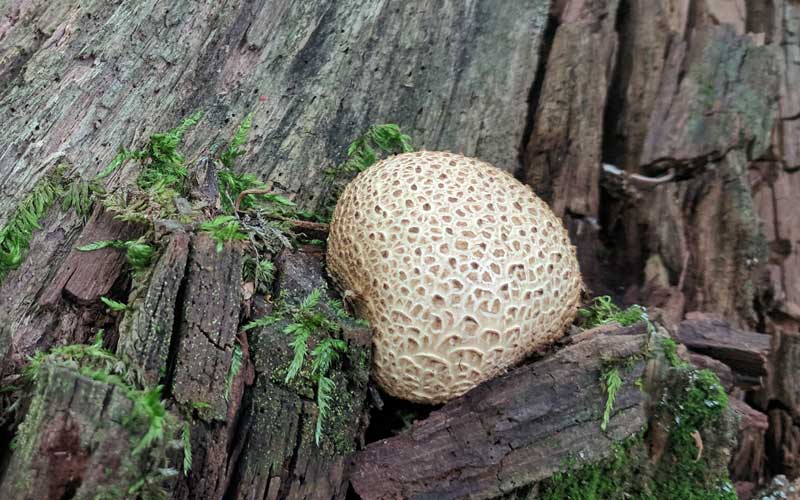Can magic mushrooms help with depression?
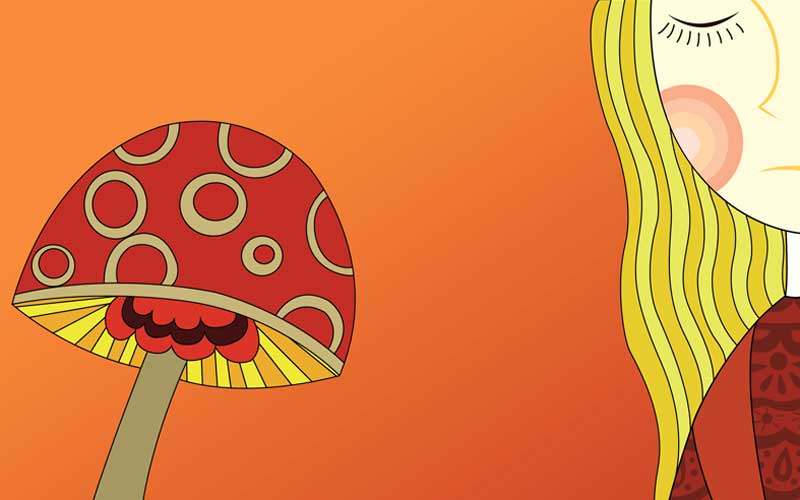
Imagine entering your therapist’s office. They give you a blindfold and offer you headphones for listening to music. They tell you to relax and encourage you to draw your focus inward.
And then they give you a dose of “magic mushroom” hallucinogen.
A day later your world has changed. The weight of the depression you’d been struggling with for months has lifted. It feels like your view on the world has been recalibrated.
For the first time in a long while, you feel hopeful about the future.
This scenario is already happening in some small clinical studies. For some, the results are nothing short of life-changing.
Potent for the mind, safe for the body.
The psychedelic compound in magic mushrooms is psilocybin. Consuming magic mushrooms or psilocybin can induce hallucinations along with feelings of connection and spiritual awakening. It can also trigger negative feelings, including anxiety and paranoia.
Because psilocybin has such potent effects on the brain without seeming to have lasting physical effects or causing any damage to the body, doctors and mental health professionals have begun to explore the possibility that this natural hallucinogenic might have some beneficial applications for people struggling with depression.
Even though psilocybin is an illegal Schedule 1 drug, studies on its potential as a treatment for a variety of mental health issues are already taking place.
Changes in brain activity.
In one study, researchers worked with 19 patients with treatment-resistant depression. The patients were treated with a single 25 mg of psilocybin. Using MRI technology, the researchers observed changes in brain activity and in connectivity between different parts of the brain. Specifically they watched how these things changed while the patients were shown fearful, neutral, and happy faces. They found that after taking the psilocybin, the patients had more activity in their amygdala — the brain’s “flight or fight” center — when looking at fearful faces.
That may seem like a negative outcome but increased emotional responsiveness in people with treatment-resistant depression is a step in the right direction. This is a small scale study, but it suggests there is potential for psilocybin to an effective for treatment-resistant depression.
Another similarly sized study that also used MRI to assess the effects of psilocybin on the brain found changes in brain activity and connectivity, as well. All the participants in this study saw a reduction in their depression symptoms, and nearly half were still experiencing the benefits after five weeks.
The doctor who heads up psychedelic research at the facility where this test took place, said participants described feeling like their brains had been reset or rebooted.
More research is needed, but these early results are exciting.
Lasting relief from depression.
In a review of eight studies on the effectiveness of psilocybin as a treatment for depression, researchers found that psilocybin treatment produced a measurable improvement in depressive symptoms almost immediately. Even better news, the positive impact was still measurable six months later. Psilocybin caused an increase in heart rate and blood pressure, but the effect was transient. No harmful side effects were observed.
Providing hope to cancer patients.
Another situation where magic mushrooms look like they might be a big help is in support for cancer patients undergoing traditional treatments like chemotherapy.
It’s easy to imagine why cancer patients might struggle with depression and anxiety. But these mental health conditions can lead to poor medical outcomes. It’s important to address them as a patient undergoes sometimes difficult treatment protocols.
In a double-blind, placebo-controlled clinical trial, 29 patients undergoing cancer treatment and dealing with depression and anxiety either received a single moderate dose of psilocybin or a dose of niacin. The psilocybin patients had an immediate reduction in their depression and anxiety symptoms. The improvements were substantial and lasting. Six months later, 60% of the patients still showed benefits from the psilocybin treatment.
Designated a “breakthrough drug”.
The potential effectiveness and overall safety of psilocybin have led the FDA to designate it a “breakthrough drug.” Twice.
The “breakthrough drug” designation is given only when a drug has shown “shown strong preliminary evidence in treating serious medical conditions.” A drug receiving this designation is essentially fast-tracked through the review and approval process, and the companies producing these drugs may receive some extra guidance from the FDA.
In 2018, the FDA gave psilocybin the nod because of its promise in helping with treatment-resistant depression (TRD). And then in 2019, it gave it the nod again because it looks to be helpful in treating major depressive disorder (MDD).
Now, TRD is a tough nut to crack. If psilocybin provides help to people who have actively tried multiple medical treatments with no luck, that’s excellent news. But MDD is even more important. Seventeen million Americans live with MDD. It’s the leading cause of disability among adults. A safe, effective treatment would be welcome, indeed.
Another change that may result in a faster understanding of how psilocybin works for people with depression is a new law in Oregon, which directs the Oregon Health Authority to create a program for psilocybin-assisted therapy. Under the new law, psilocybin will have to administered in a state-licensed clinic and accompanied by three sessions of therapy. This kind of support for using psilocybin will add to the growing body of clinical evidence.
Is it worth the risk?
Unless you live in Oregon and have access to a therapist ready provide psilocybin treatment to you, you’re years away from being able to legally access magic mushrooms to treat depression.
So what are the risks of getting ahold of some shrooms and treating yourself at home? Aside from possibly running afoul of the law, of course.
The truth is magic mushrooms have very little in the way of dangerous physical effects.
The real danger is that you’ll have a bad trip. You could end up feeling confused, paranoid, or anxious. You could have disturbing hallucinations… and some people end up with Hallucinogen Persisting Perception Disorder, which can alter your ability to perceive reality for weeks.
For some people these experiences can be quite traumatic, which is the opposite of what you want if you’re feeling depressed.
But for some people who are mired with depression, these risks are worth it when you consider the potential upside — a substantial lessoning of depressive symptoms within a day of your trip.
That’s why so many people aren’t waiting for the rules, regulations, and laws to catch up. They need help now, and magic mushrooms offer them a lifeline to a brighter future.
Related Topics:
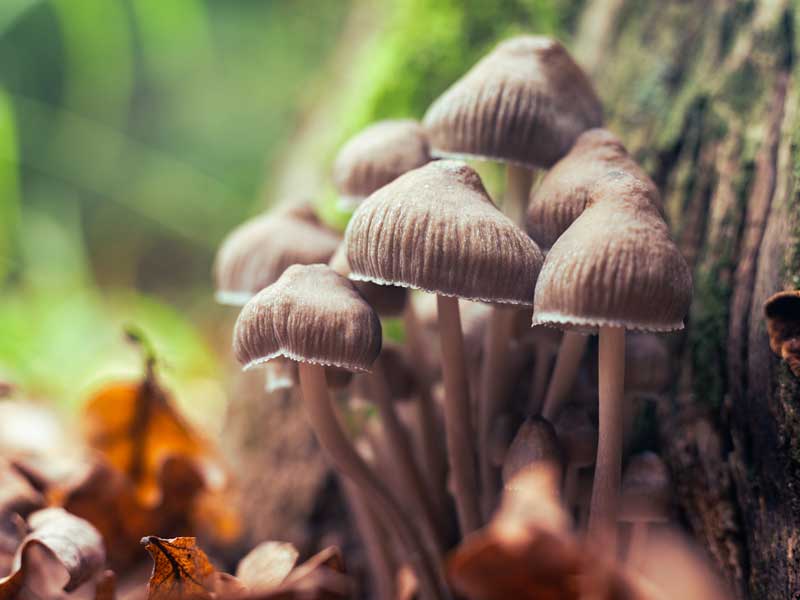
A brief history of magic mushrooms, and how they can improve our lives.
Magic mushrooms have played a role in the spiritual, psychological and mental health of people for millennia. Read the full article...
Hallucinogenic mushrooms among the indigenous peoples of South America.
The cultural and spiritual roots of hallucinogenic mushrooms can be found among the indigenous peoples of South and Central America. Read the full article...
Micro-dosing magic mushrooms can benefits mood and focus.
Micro-dosing with the psilocybin in magic mushrooms can lift your mood and sharpen your focus. Read the full article...
Psilocybin smoking cessation works better than prescription drugs.
If you’ve tried everything to quit smoking, magic mushrooms may be the key to success. Psilocybin smoking cessation has an 80% success rate in early tests. Read the full article...
The Stoned Ape Theory – Magic Mushrooms and Our Great Leap Forward.
As a species, we’ve made some weird leaps forward in our evolution. The Stoned Ape Theory says magic mushrooms may have been involved. Read the full article...
